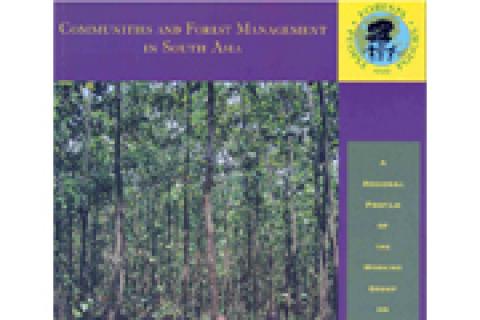Although the Conference of the Parties of the Convention on Climate Change has not yet approved plantations and forests as carbon "offsets", the carbon shop is already very active. What follows is an e-mail message advertising Brazil as a place where cheap land and cheap labour is available for energy utilities to dump their carbon emissions:
"From: OMNITRADE aaa@yawl.com.br
Sent: Friday, July 14, 2000 2:25 AM
Subject: Greenhouse gas emissions - An alternative
Other information
By the international Working Group on Community Involvement in Forest Management, September 2000.
A regional profile of WG-CIFM, the working group on community Involvement in forest management
Communities and Forest Management in South Asia
Plantation projects using tree monocultures to sequester carbon being implemented in UGANDA by two Norwegian firms constitute a paradigmatic example of the rationale and the consequences of this kind of projects.
Asia has been the most affected region by the substitution of forests by tree monocultures, which has resulted in negative consequences both at the local and global levels. Indigenous peoples and local communities have a history of resistance to this type of forestry development. In spite of that, carbon forestry appears to be on the rise in this continent.
Giant AUSTRALIA is a major actor in the geopolitics of Oceania. With its particular situation in the Southern hemisphere but being a Northern country and included in the Annex I countries, Australia is the only country that enjoys the possibility of increasing its greenhouse gas emissions by 8% above 1990 levels in the commitment period 2008 to 2012. Nevertheless, this country has enthusiastically embraced the idea of offering its territory for forestry-based carbon sink projects.
Responding to a request of the U.S.-based independent electrical power producer Applied Energy Services Inc. (AES), in 1988 the World Resources Institute identified and evaluated forestry projects to compensate the carbon dioxide emissions of the company's new coal-fired powerplant in Connecticut, expected to emit about 14.1 million tonnes of carbon over its 40-year lifespan.
In the last decades several South American countries have been the scenario of the expansion of tree monocultures --basically eucalyptus and pines-- mostly devoted to pulp production. The newly created carbon market can mean a renewed push to further expand this activity, this time with a new or additional purpose. In fact, forestry companies and some governments are very enthusiastic about the idea of using part of the already existing plantations and installing new ones to serve as carbon sinks.
The Oilwatch network will be holding its International Assembly in Durban, South Africa, on 1-2 August. The Assembly will be preceeded by a preconference on "Dictatorships and Oil" (28-29th of July 2000). During their meetings, the Oilwatch people will be addressing the problems generated by the oil industry in the tropics and the ways forward to support local peoples resisting it. For further information, please contact the network's International Secretariat
Fundación Beteguma is a Colombian NGO, with headquarters in Quibdó at the Pacific coast region, which seeks to promote the social, cultural and environmental development of the Biogeographic Chocó through activities of research, conservation and sustainable production involving local communities. The Chocó is one of the few biodiversity hotspots in the world and is suffering a process of environmental degradation because of illegal logging and mining, as well as abuses to human rights.
In May this year, the WRM held a meeting in the Mount Tamalpais area near San Francisco, California. Among many other important issues, the meeting addressed the increasing pressure to promote large scale tree plantations as a means to "offset" carbon dioxide emissions, and issued a Declaration detailing the reasons for opposing such approach.
Following an existing trend at the global level, oil companies in Argentina have enthusiastically embraced the idea of entering the carbon permits market, as an effective way to increase their profits and revamp their image to the eyes of public opinion: from the bad guys responsible for global warming to champions of forest conservation!

